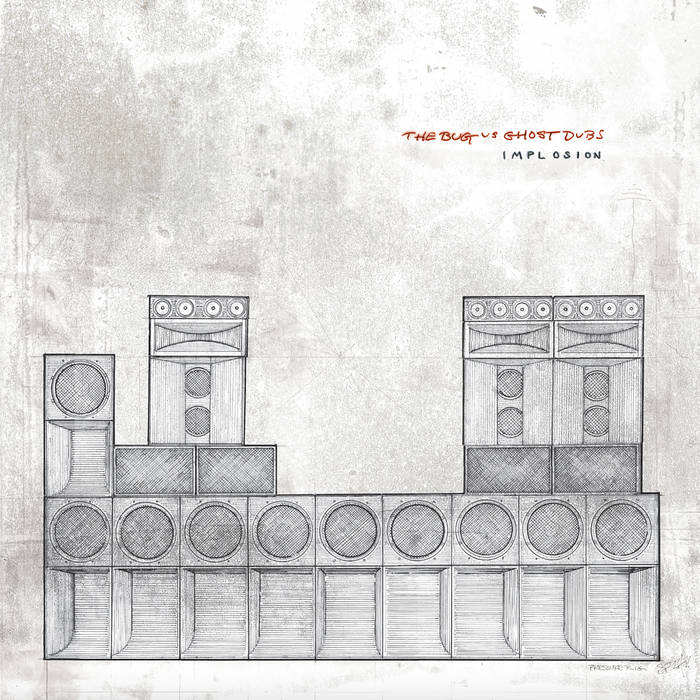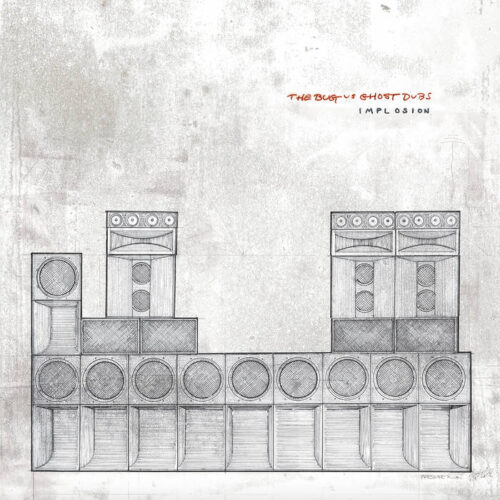Footage from The Bug’s recent sold-out PRESSURE Berlin sets show heaving, sweaty crowds, losing themselves in Kevin Richard Martin’s genre-stretching dub and the pounding, cathartic barrage of low-end. Among the four sets and various guest spots, the line-up also featured the first b2b set between The Bug and Ghost Dubs, debuting material from this unsettling and introspective split, released on The Bug’s own PRESSURE label.
You can understand why Martin and Michael Fiedler, aka Ghost Dubs, said they felt nervous about launching this understated new material in a prime-time club setting. The split is cool, minimalist, and introverted, seemingly at odds with the collective joy and catharsis of the live setting. Implosion is still propelled by deep, throbbing bass, and you can tell cuts like ‘Militants’ or the fuzzed-up bounce of ‘Dread’ will hit live at the mind-obliterating volumes Martin’s shows are known for. However, the LP is modelled more on the hauntological witching-hour soundscapes of Burial (The Bug nodded to the past by ending his final PRESSURE set with a rendition of ‘Archangel’) than the harsher, industrial textures Martin explored on 2024’s Machine.
The split explores what Martin labels “spectral dub”, an attempt to capture the “future-shock energy” of the Jamaican music that’s continually inspired his three-decade project. The sixteen-track collection is structured to unsettle, a stark industrial soundscape that is absent reassuring vocal hooks or melodies, alternating between Martin and Fiedler’s uniquely hypnotic and immersive takes on the genre. The Bug’s cold, richly detailed industrial pulse on ‘Believers’ immediately snuffs out the light from the ethereal reverb-drenched drone of Fiedler’s ‘In The Zone’. Organised this way, the tracks are constantly in restless conversation, playfully sparring, casting light on new angles every listen.
Implosion is a long and challenging album, never allowing you to settle too comfortably into one or the other’s style. And for an album that marks the mid-point of a bleak decade in human history, this kind of all-enveloping gloom and unease is entirely apt. The looming inhuman wraiths that stalk the tracks, the cold industrial textures, menacing beats and warped echoes of sampled melody – no better illustrated than the exhilarating crescendo of ‘Alien Virus’ – create a chilling and unforgettable ride. Implosion conjures a dystopian Ballardian skyline, but at times is able to point beyond it, offering a glimpse of how much more the genre has left to explore.



